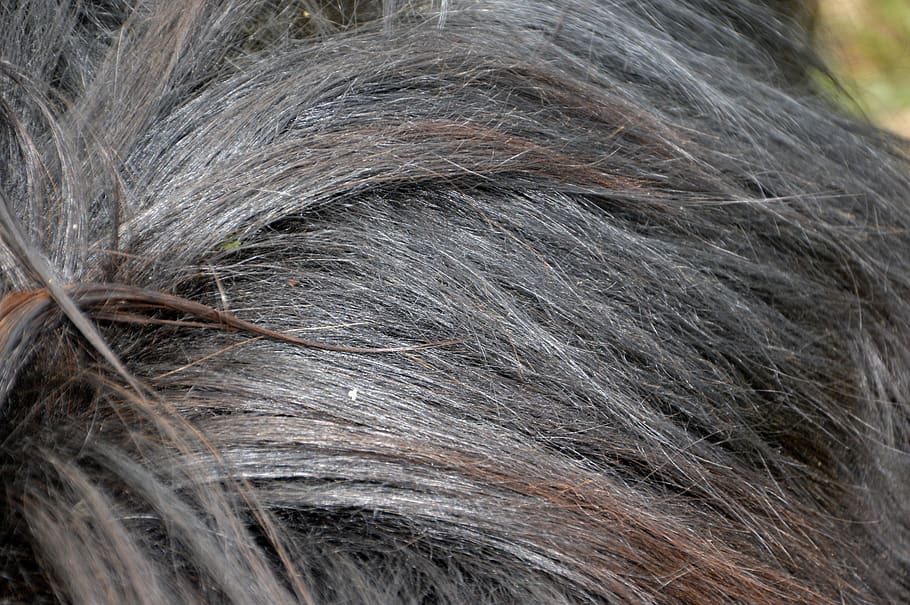INTRODUCTION:
Hair is an essential part of our appearance and identity. It can reflect our personality, culture, and even our health. From long, flowing locks to short and spiky cuts, hair can be styled in countless ways, and its versatility allows us to express ourselves in unique ways.
However, caring for our hair can be a challenging task. With so many products, tools, and treatments available, it can be overwhelming to figure out the best way to keep our hair healthy and looking its best. Additionally, there are many factors that can affect the health and appearance of our hair, such as genetics, diet, and environmental factors.
In this article, we will explore various aspects of hair, including its structure, growth cycle, and common hair care practices. We will also discuss some of the most common hair concerns, such as hair loss and damage, and provide tips for maintaining healthy hair. Whether you have straight, curly, thick, or thin hair, this article will provide valuable information to help you understand and care for your hair.
ANATOMY:
Appearance and morphology of the hair is regarded as one of the divergent traits of human population. Hair has a distinct specialized anatomical structure. Hair fibers consist of three morphological components namely, the cuticle, the cortex, and the medulla. Layers of cuticle cells form the outer sheath of the hair fiber and are mainly responsible for the cosmetic properties of hair. The cuticle forms a protective barrier for the hair against the outside environment.[1] Mechanical properties of the hair are attributed to the cortex, which forms the bulk of the fiber.
STRESS EFFECTING HAIR:
- Stress can cause hair to gray prematurely by affecting the stem cells that are responsible for regenerating hair pigment.
- The findings give insights for future research into how stress affects stem cells and tissue regeneration.
- Stress can have a variety of negative effects on the body. The idea that acute stress can cause hair to turn gray is a popular belief. But until now, that link wasn’t scientifically proven.
- Hair color is determined by cells called melanocytes, which produce the pigment melanin. New melanocytes are made from melanocyte stem cells that live within the hair follicle at the base of the hair strand. As we age, these stem cells gradually disappear. The hair that regrows from hair follicles that have lost melanocyte stem cells has less pigment and appears gray.
- The researchers eventually turned to the neurotransmitter noradrenaline, which, along with corticosterone, was elevated in the stressed mice. They found that noradrenaline, also known as norepinephrine, was key to stress-induced hair graying. By injecting noradrenaline under the skin of unstressed mice, the researchers were able to cause melanocyte stem cell loss and hair graying.
- Noradrenaline is produced mostly by the adrenal glands. However, mice without adrenal glands still showed stress-related graying. Noradrenaline is also the main neurotransmitter of the sympathetic nervous system, which is responsible for the “fight-or-flight” reaction in response to stress.IN REF(https://www.nih.gov/news-events/nih-research-matters/how-stress-causes-gray-hair)
REASONS FOR GREY HAIR:
There are several medical reasons why someone may experience early grey hair. Here are some of the most common ones:
- Genetics: The most common cause of premature graying is genetics. If your parents or grandparents experienced early greying, you may be more likely to as well.
- Autoimmune conditions: Conditions like vitiligo, which causes loss of pigmentation in the skin and hair, and alopecia areata, which causes hair loss and can sometimes lead to gray hair, can contribute to premature graying.
- Nutritional deficiencies: Nutritional deficiencies, particularly in vitamin B12 and vitamin D, have been linked to premature graying.
- Thyroid disorders: Thyroid disorders like hyperthyroidism and hypothyroidism can cause premature graying.
- Smoking: Smoking has been linked to premature graying as it can damage the DNA in hair follicles and lead to oxidative stress.
- Stress: Chronic stress can contribute to premature graying, as stress can deplete the melanin-producing cells in hair follicles.
- Medical treatments: Certain medical treatments like chemotherapy can cause hair to turn gray prematurely.
If you are experiencing premature graying and are concerned about it, it is always a good idea to speak with a healthcare professional to rule out any underlying medical conditions
COMMON REASONS:
Hairfall is a common problem that affects both men and women. Here are some tips to take care of your hair and prevent hairfall:
- Maintain a healthy diet: A well-balanced diet can help prevent hairfall. Make sure to include foods that are rich in protein, iron, zinc, and vitamins A, B, C, and E in your diet.
- Keep your hair clean: Regularly washing your hair with a mild shampoo can help prevent hairfall. Avoid using hot water to wash your hair as it can damage your hair and cause hairfall.
- Use a conditioner: Using a conditioner after shampooing can help prevent hairfall by making your hair smoother and easier to comb.
- Avoid tight hairstyles: Tight hairstyles like braids, ponytails, and buns can put a lot of stress on your hair, causing hairfall. Opt for looser hairstyles instead.
- Don’t use harsh chemicals: Avoid using harsh chemicals on your hair, such as hair dyes, bleaches, and perms, as they can damage your hair and cause hairfall.
- Massage your scalp: Massaging your scalp can increase blood flow to your hair follicles, promoting hair growth and preventing hairfall.
- Manage stress: Stress can cause hairfall, so it’s important to manage stress levels. Exercise, meditation, and deep breathing techniques can help reduce stress.
- Take care of your hair while sleeping: Avoid sleeping with your hair tied up as it can cause hairfall. Use a silk or satin pillowcase to reduce friction and prevent hair breakage.
- Seek medical advice: If your hairfall is severe, it’s important to seek medical advice as it could be a symptom of an underlying health condition.
HAIR CARE FOOD:
Maintaining a healthy and balanced diet is crucial for healthy and lustrous hair. Here are some foods that are rich in nutrients that can promote hair health:
- Eggs: Eggs are a great source of protein, which is the building block of hair. They also contain biotin and vitamin D, which can help promote healthy hair growth.
- Salmon: Salmon is rich in omega-3 fatty acids, which are essential for healthy hair growth. It also contains vitamin D, which can help prevent hair loss.
- Spinach: Spinach is a great source of iron, which is essential for healthy hair growth. It also contains vitamin A and C, which can help promote the production of sebum, a natural oil that keeps hair moisturized.
- Sweet potatoes: Sweet potatoes are rich in beta-carotene, which is converted to vitamin A in the body. Vitamin A is essential for healthy hair growth and a healthy scalp.
- Nuts and seeds: Nuts and seeds are rich in nutrients such as vitamin E, zinc, and selenium, which can help promote healthy hair growth.
- Avocado: Avocado is a great source of healthy fats, which can help keep hair moisturized and prevent breakage. It also contains vitamins B and E, which can help promote healthy hair growth.
- Greek yogurt: Greek yogurt is a great source of protein and vitamin B5, which can help promote hair growth and prevent hair loss.
Incorporating these foods into your diet can help promote healthy and nutritious hair. Additionally, drinking plenty of water and avoiding processed and sugary foods can also contribute to healthy hair growth.
HEALTHY HOME MADE HAIR MASKS:
Certainly! Here are some simple homemade hair masks that you can try using natural ingredients:
- Avocado Hair Mask: Mash a ripe avocado and mix it with a tablespoon of honey. Apply it to your hair and let it sit for 30 minutes before washing it off with lukewarm water. This mask helps to nourish and moisturize your hair, leaving it soft and shiny.
- Banana Hair Mask: Mash a ripe banana and mix it with a tablespoon of olive oil. Apply it to your hair and leave it on for 20-30 minutes before washing it off with a mild shampoo. This mask helps to strengthen and moisturize your hair, leaving it smooth and frizz-free.
- Yogurt Hair Mask: Mix 1/2 cup of plain yogurt with 1 tablespoon of honey and 1 tablespoon of apple cider vinegar. Apply it to your hair and leave it on for 30 minutes before washing it off with a mild shampoo. This mask helps to balance the pH of your scalp, nourish your hair, and improve its texture.
- Egg Hair Mask: Beat two eggs and mix them with 1 tablespoon of olive oil. Apply it to your hair and leave it on for 20-30 minutes before washing it off with lukewarm water. This mask helps to strengthen and nourish your hair, leaving it silky and shiny.
- Coconut Oil Hair Mask: Warm up 1/4 cup of coconut oil and apply it to your hair, focusing on the ends. Leave it on for 30 minutes before washing it off with a mild shampoo. This mask helps to moisturize your hair and prevent split ends.
NEED OF WATER FOR HAIR:
Water is definitely important for maintaining healthy hair. Drinking enough water can help to keep your hair hydrated from the inside out, which can make it look shinier and less prone to breakage.
In addition to drinking water, it’s also important to rinse your hair with water regularly when you shower or bathe. This can help to remove any build-up of dirt, oil, or styling products, which can weigh down your hair and make it look dull.
However, it’s important to note that while water is important for healthy hair, it’s not the only factor. Other factors, such as a healthy diet, regular exercise, and using hair care products that are appropriate for your hair type, can also play a role in keeping your hair looking its best.
HAIR CARE FOR DULL HAIR:
Dull hair can be caused by a variety of factors such as over-styling, exposure to harsh chemicals, and nutritional deficiencies. Here are some tips to care for dull hair:
- Use a clarifying shampoo: Buildup from hair products, hard water, and pollutants can make hair look dull. Use a clarifying shampoo once a week to remove buildup and restore shine to your hair.
- Condition regularly: Conditioning your hair after shampooing helps to add moisture and shine back into your hair. Look for conditioners that contain ingredients such as keratin, jojoba oil, or shea butter, which are great for nourishing and adding shine to hair.
- Limit heat styling: Heat styling tools such as flat irons, curling irons, and blow dryers can damage hair and make it look dull. Try to limit your use of these tools, or use them on a lower heat setting to minimize damage.
- Protect your hair from the sun: UV rays from the sun can damage hair and make it look dull. Wear a hat or use a hair product that contains SPF to protect your hair from the sun.
- Eat a balanced diet: Nutritional deficiencies can make hair look dull and lifeless. Make sure you’re getting enough vitamins and minerals in your diet, particularly vitamin A, vitamin E, and biotin, which are all important for healthy hair.
- Get regular trims: Split ends can make hair look dull and unhealthy. Get regular trims every 6-8 weeks to keep your hair looking healthy and shiny.
HAIR CARE FOR GREY HAIR:
- Use a shampoo and conditioner formulated specifically for grey hair: Grey hair tends to be drier and coarser than other hair types. Therefore, it is essential to use a shampoo and conditioner that will nourish and hydrate your hair. Look for products that are specifically formulated for grey hair and contain ingredients like argan oil, keratin, and vitamin E.
- Avoid using hot styling tools: Heat can damage your hair, making it dry and brittle. To prevent this, try to avoid using hot styling tools like hair straighteners, curling irons, and hair dryers. If you must use them, use a heat protectant spray to minimize damage.
- Protect your hair from the sun: Exposure to the sun can cause your hair to become dry and brittle. Protect your hair by wearing a hat or using a hair product that contains SPF.
- Avoid harsh chemicals: Chemical treatments like hair dyes and perms can damage your hair, causing it to become dry and brittle. If you must dye your hair, consider using a semi-permanent or temporary color that is gentler on your hair.
- Use a deep conditioning treatment: Once a week, use a deep conditioning treatment to nourish and hydrate your hair. Apply the treatment to your hair and leave it on for at least 15 minutes before rinsing it out.
- Brush your hair gently: Brush your hair gently, starting from the ends and working your way up to prevent breakage. Use a wide-toothed comb or a brush with soft bristles to prevent damage to your hair.
By following these tips, you can keep your grey hair healthy, shiny, and beautiful.





